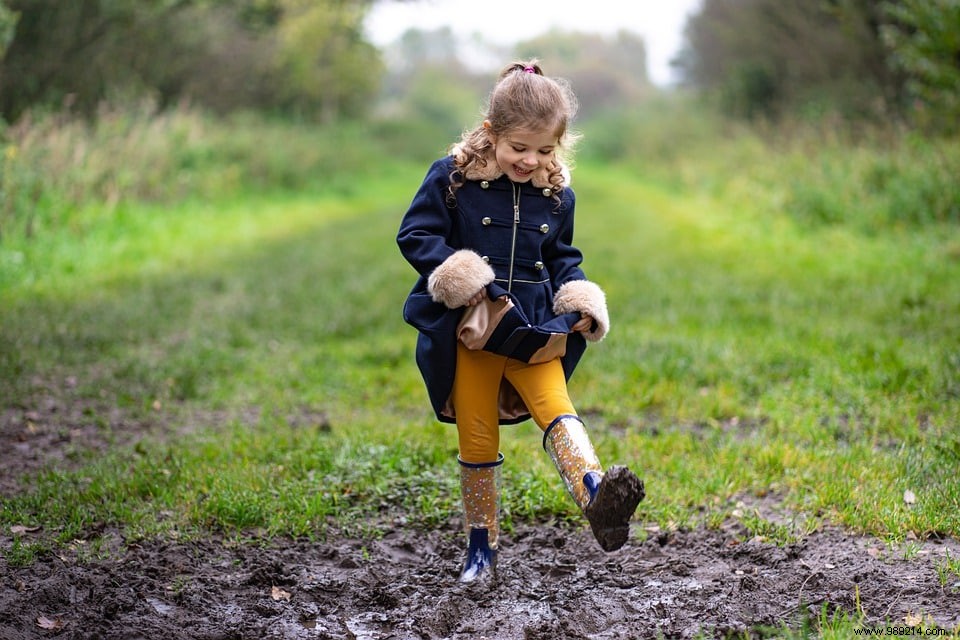To overprotect children from nature would not be a very good thing for their development and their health. In reality, they should be left to get more dirty, despite the restrictive washing of clothes.
When children play outside or walk in the forest, parents tend to avoid getting dirty at all costs. Indeed, cleaning clothes can then become an ordeal. However, according to an epidemiological bulletin published by Public Health France in 2015, this would not be a very good idea .
It may sound quite paradoxical, but exposing children to dirt can strengthen their immune defenses. Thus, handling mud, jumping in puddles or even eating a few dead leaves would not be something to worry about and would, on the contrary, allow them to be better protected against certain diseases.
Santé Publique France evokes harmless microorganisms for children, present in these elements of nature. In contact with the skin and the digestive system, these microbes in small doses thus help to strengthen the immune system by supplementing its activity.

The bulletin evokes a hypothesis emanating from several specialists. According to them, the disinfected and debacterized (or rather sanitized) environments characterizing industrialized countries may be responsible for an increase in certain pathologies . Examples include allergies, asthma or certain diseases of the digestive system such as Crohn's disease. The cause of this increase is none other than the lack of exposure to microbes in general and more specifically to the right types of microbes.
However, it must be said that no less than four out of ten children would hardly ever play outside. One of the causes is the city living environment, but let us also mention the attitude of many parents who overprotect their children. However, the risks are rather low in nature if you respect some basic rules . Indeed, it is quite possible to play freely, while setting certain limits of space and time or even avoiding certain manipulations.
For example, children should not get too close to bodies of water. Handling fruits and other unknown mushrooms is also to be banned. In addition, children should avoid touching abandoned waste . Finally, equipping children with strong and resistant clothes, especially weatherproof, is a plus in order to avoid excessively restrictive detergents.